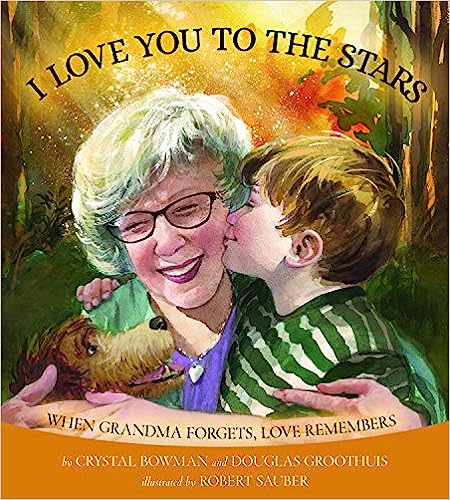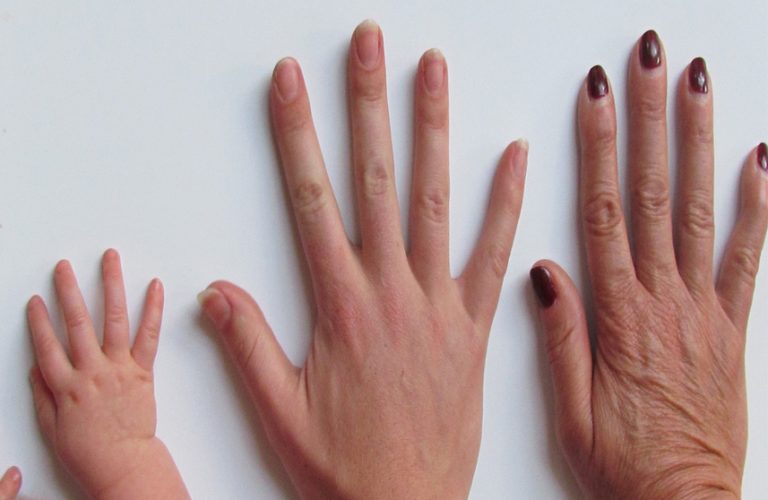Little Johnny couldn’t wait to visit Grandma. He planned to make cookies, read books, play with playdough, show her how he learned to ride a bike, … But this time, Grandma couldn’t remember him, and nothing was the same.
Dementia is confusing to everyone, especially the grandkids. How can you help Johnny process these changes?
At Frontida Assisted Living, like Frontida of Germantown, we provide caring and loving assisted living and memory care to our residents suffering from dementia and other similar diseases. We understand this is a difficult time for you and your family, which is why we make sure to provide the best care for your loved ones.
Grieving isn’t just for adults. Kids need to work through the emotions, too. We talk about children being resilient, but we don’t just want them to adjust. We want them to thrive and grow. Yes, Alzheimer’s or one of the other dementias is stealing bits and pieces of someone they love.
But walking through these challenges with your child can help him both shed his anxiety and grow in compassion and kindness.
1. Set Times to Talk
“We Don’t Talk about Bruno” is a catchy Disney song. But it doesn’t work here. Children need to process, and that often means talking, asking questions—about life, about changes, about people in their lives—including Grandma.
A good way to start? Picture books that talk about Grandma’s dementia.
Crystal Bowman’s I Love You to the Stars: When Grandma Forgets, Love Remembers is a beautiful choice.

The Story?
A young grandchild loves when Grandma moves in with him. Together, they do puzzles and play at the park, and she teaches him to sound out his words. But one day, she puts her clothes in odd places, she can’t remember what sound an “m” makes, and a cop brings her home when she’s lost.
The little boy needs to learn ways he can still show Grandma he loves her. As his mom says, “She has always helped us. Now it’s our turn to help her.”
With Bowman’s sweet narrative plus discussion questions at the end, this book is the perfect opening to a good conversation. The character experiences situations that your child might be noticing with Grandma, and its resolution offers solid ideas to help.
Yes, the story will probably make you cry. But it will help your child know he’s not alone. Besides, tears can be healthy. (See point #2).

2. Let Him Grieve
Grieving isn’t just about death. And it isn’t just for adults. Children need to be allowed to go through the steps of grief as well—for what is, for what isn’t.
You may see your little one sad, crying, angry, denying, and sometimes, accepting. But don’t expect his grief to be linear.
- Just like you, he may circle back and forth between the “stages,” especially as Grandma’s disease progresses and life continues to change.
- Grief doesn’t work on a timeframe. There may be days he doesn’t think about the illness at all. But suddenly a holiday or a missed event may bring the grief back again.
- Not only will he be losing what he had with Grandma, but, at times, he may not have the relationship with you that he wants since you may be caring for Grandma yourself. (If that care becomes too much, Frontida Assisted Living Facilities are here to help.)
- He may act out because he doesn’t understand what he’s feeling. That’s the time to talk more.
One helpful tool could be these diy-cards for Grandma, a simple gift idea that encourages young ones to process emotions while also considering how others feel.
This gives him a chance to grieve while showing him others are grieving, too.
3. Capture the Memories
Young singer Harry Gardner wrote his heart-wrenching song Not Alone when he realized his grandmother didn’t remember him anymore. You can hear the sixteen-year-old explain why he wrote the lyrics here. When he sang it for Britain’s Got Talent, there clearly wasn’t a dry-eye in the room.
While your little one may not be prepared to write a global hit, he can write down memories of his fun times with Grandma. Let him create stories or books, record videos, or draw pictures of his favorite moments and laughs.
When he visits Grandma in her assisted living facility, have him bring what he created to share with her.
Yes, it’s okay for him to make sad stories, too.
Help him capture the stories that he will want to remember, even when Grandma forgets.
4. Play Music Together.
In Crystal Bowman’s I Love You to the Stars, the young boy enjoys music with Grandma even after she can no longer care for herself.
It gives them both joy.
In fact, because music touches so many parts of the brain, it has been scientifically shown to help dementia patients tap into old memories. While singing some of her favorite tunes, Grandma may seem to “wake up” to her grandson.
Even if she doesn’t, they’ll still enjoy the fun of singing favorite lyrics together. You could even bring a small drum along and let them beat the tune out while dancing.
Guaranteed to bring laughter and all those feel-good hormones.
5. Cheer Him On through the Confusion
With dementia, some days Grandma will believe she’s in a different time or place—often one much younger.
Encourage your child not to be frightened if Grandma calls him by his daddy’s name.
If you can, pull out old pictures of his father or Grandma’s brother. Show him how much he looks like them and why she might get confused. Use the moments as an opportunity to share stories of Grandma’s younger years.
Then, let your child know it’s okay to play along.
It won’t help to correct Grandma as to who her son is versus her grandson. But it can comfort her to smile and tell her how much he loves her.
And just like your little boy sometimes pretends he’s a dog and crawls around on the floor barking, he can let Grandma call him son or little brother for a while.
Your son may not understand everything about Grandma’s disease, but you can teach him gentle compassion for her mistakes.
6. Keep the Door Open for More Talks
Currently, there’s no cure for Alzheimer’s or dementia. As the disease takes more of Grandma, your son will continue to need a safe place to work through the loss.
Have special nights to share memories of Grandma over and over again. Reread the stories, rewatch the videos, draw more pictures. Make her favorite cookies. Dance to her favorite music. Sing her songs.
Need more picture books?
Try Alex Winstanley’s My Grandma Has Dementia or one of these other children’s books on dementia.
All in all, let your little boy know how much his grandma loves him even if her mind won’t let her tell him.
Then show him ways he can remind her of his love in return.
If you need detailed and professional memory care and assisted living for your loved one who’s suffering from Dementia, turn to Frontida Assisted Living. Schedule a tour of one of our assisted living communities today.
Thank you to Hannah Pirnie and Pixiebay for the featured image
Need more information? Check out these other helpful posts to learn more about dementia.

Elizabeth Daghfal is a writer, teacher, speaker, and community volunteer. When she isn't teaching or writing-- Who are we kidding? Her husband and five kids say she's ALWAYS teaching and writing. She has a passion to help people who are struggling and is happy to say her shoulders are drip-dry. Born and raised in the South, she now lives in Wisconsin and loves it--except for the fifteen months of winter. Read more about her at elizabethdaghfal.com.

